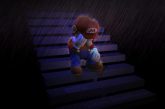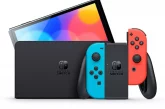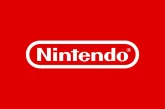If you grew up in the United Kingdom during the 1980s and first of the 90s, you’ll know the name Ocean Software. They were one of the biggest developers and publishers in Europe and they churned out a shit tonne of games for pretty much any system that was ever available.
Originally founded as a side business in 1983, Ocean Software were initially called Spectrum Games. However, apart from being a very bland and unappealing name, it was also mistaken by retailers as being connected to the ZX Spectrum micro computer which isn’t exactly what you want when trying to sell ports for competing computers. So, the company name was changed to Ocean Software which is still an incredibly bland and unappealing name. In fact, the name was apparently chosen simply because a truck just so happened to drive by the office window with the word “Ocean” on the side. It’s these un-exciting and kinda “whatever, that’ll do” business decisions that allowed Ocean to churn out nothing but games of the absolute highest quality… oh wait.
It didn’t take long for the management at Ocean to realise that by merely buying up licenses for soon to release movies, they could shit out any old game no matter how crap it is, and it’ll be a monster hit. And that’s pretty much what allowed Ocean to not just survive but also expand and become the big company they became. Remember that back in the 1980s, the gaming industry wasn’t really taken seriously so getting a film license wasn’t that expensive. Developing games took much less time and only needed two or three people on average, while cassette tape duplication was quick and inexpensive when compared to console cartridges. The most expensive part of the operation was likely distribution and marketing.
The problem with this business strategy was, it was ultimately what became Ocean’s downfall. With the move away from micro computers and a focus on the 16-bit consoles, everything became more expensive. Everything took longer and it was no longer the case of just manufacturing the stock to distribute to retailers. Consoles need licenses to develop for. You need to purchase dev kits for any system you want to release on. Finally, cartridges had to be purchased from Nintendo and Sega in order to get the games put onto them. That’s not cheap, and the bigger the game, the more expensive each cartridge will cost. At the same time, the licensing of movies was now itself becoming way more expensive.
Ocean did produce some original IP but this did seem to be something that, for whatever reason, wasn’t seen as an area to invest more into. Something that should have been addressed when it was obvious movie licenses were no longer as easy or cheap to get hold of. To make matters worse, the scrutiny over the quality of the games that got thrown out during the 16-bit generation started to, as a whole, mean standards in quality needed to be higher. And that’s something Ocean just didn’t have.
A great game to show just how poor the games as a whole coming out from Ocean were during the 90s is Dennis the Menace. That’s the game based on the movie based on an American comic book, nothing to do with the British comic book of the same name but a totally different, albeit just as much a twat, character. This is a game that has all the same level design, randomly placed enemies and what-the-fuck objects that are also often enemies scattered everywhere. There appears to be little or no thought into actually developing the game and it feels so low quality too. During the 8-bit era of ZX Spectrum, C64 or Amstrad CPC, this kind of design was accepted and would have been generally liked. But not on the SNES. This was Ocean’s problem. They continued to churn out crap and hoped it was enough.
The below screenshots are of Dennis the Menace (just called Dennis in the U.K.) from the Lemon Amiga website:
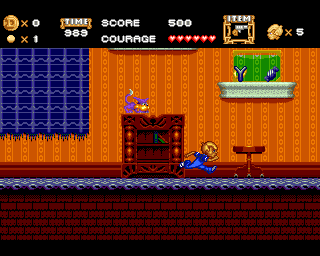
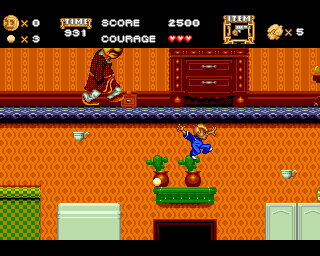
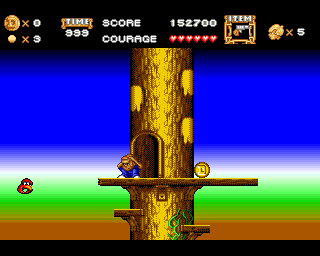
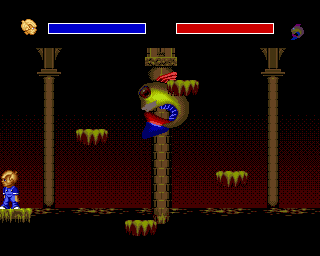
Ocean did have a great working relationship with Taito, which allowed them to port and publish Taito arcade games to micro computers and later, consoles in Europe. As a whole, these did turn out pretty well. In fact the port of New Zealand Story was an absolute monster of a success in the United Kingdom. So, this was one area Ocean seemed to put some efforts into and it paid off for them.
The few original IP that came out of Ocean too was by and large, pretty good which suggests a push more into this direction could have been massively beneficial for the company. May have even kept them from the need to sell out. Three games that spring to mind is Head Over Heels, Pushover and Sleepwalker. The first two games were actually really good titles while the latter had an excellent and original concept, but was just unfairly hard which meant you were lucky to get past level one without destroying the game and probably controller in anger.
Another fantastic source of revenue for Ocean was that they owned a decent stake in another publisher, also based in the United Kingdom. U.S. Gold was supposed to be all about importing American games to sell to the retailers over here. What they actually ended up becoming was a publisher of a lot of incredibly poor quality games. I feel a pattern emerging here. That’s unless you discount the odd game here and there such as Flashback which is actually a great game. But this is a publisher I’ll write a damning article about another time.
By the time the mid 90s had come and developing and publishing games was again increasing in both costs and development time, let alone everything else that was required, Ocean was seeing mounting debts and the owners were looking for a sale. In comes French company Infogrames who were looking for a speedy international expansion and seemed to be willing to pay whatever price to do so. Which is likely why Ocean Software was purchased for £100 million in 1995. Why so much? Who knows, because Ocean didn’t own much in the way of its own original IPs considering most of what they produced was based on licenses. Soon after, the easy to spell and say Ocean branding was dropped in favour of Infogrames which is just… what the fuck does it even mean? It’s a terrible name. At least Ocean had a pretty cool logo.
Well, Infogrames learned the lesson about not using meaningless and crap names and bought Atari Inc and changed their own name to Atari a good few years later. And they went on to have a really successful business for decades to come… oh, wait. Morons.
Ocean Software as a name no longer exists though someone owns the trademark, I’m not sure who. The company itself does still exist however. It’s now under the ownership and therefore name Bandai Namco. But other than a change in name, the company is still technically the same company, you can see that on Companies House. A lot of businesses go through multiple names for many reasons. But sometimes you have to wonder what could have been if they had perhaps not put all their eggs into low quality movie licensed games.

